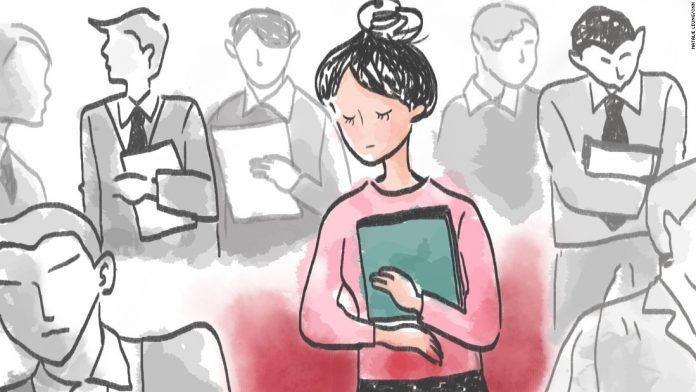Context:
In recent years, the Sabrimala temple issue sparked widespread debate, shedding light on discriminatory practices surrounding menstruation and the broader struggle for gender equality. It challenged the notion that menstruating women were unfit to enter the temple, igniting a chorus of voices proclaiming menstruation as a natural phenomenon, not a stigma. However, amidst this push for equality, a demand has emerged for paid leave specifically for menstruation, raising concerns about its potential implications for gender equality efforts.
Challenges to Gender Equality:
The demand for paid menstrual leave, while well-intentioned, risks undermining the progress towards gender equality. While it's undeniable that menstrual cycles can be physically and emotionally challenging for many women, categorizing all individuals of a particular gender as needing special accommodations overlooks the diverse experiences within that group. By framing menstruation as a blanket biological disadvantage, there's a danger of trivializing the broader women empowerment movement and perpetuating stereotypes.
The Global Gender Gap Report 2021 highlights the widening gender gap worldwide, signaling that achieving gender equality remains a distant goal. Women continue to face disparities in workforce participation, wage earnings, and representation in leadership positions. Introducing mandatory paid leave for menstruation could further dissuade companies from hiring women, exacerbating existing inequalities rather than addressing them. Moreover, validating the social stigma around menstruation through government ratification of special status for menstruating women risks reinforcing period shaming, particularly in cultures where menstruation is considered impure.
Implications of Paid Leave Policies:
Countries like Japan provide unpaid menstrual leave, yet utilization remains low due to fear of stigma and harassment. Despite the policy being in place for decades, only a fraction of women avail themselves of this leave, reflecting deeply entrenched societal attitudes. Japan's slipping rankings in gender equality underscore the limitations of such policies in addressing systemic inequalities. Similar concerns arise regarding the implementation of paid menstrual leave elsewhere, raising questions about enforcement methods and potential misuse by employers.
Instances of menstrual discrimination, such as forced strip searches in schools, highlight the challenges of enforcing policies related to menstruation. These egregious violations not only infringe upon individuals' privacy and dignity but also underscore the pervasiveness of period stigma. Implementing paid menstrual leave without robust safeguards and awareness initiatives could inadvertently perpetuate such discriminatory practices, further marginalizing menstruating individuals in society.
Continuing the Fight:
Women have long fought for equality, whether on the battlefield or in corporate boardrooms. Despite significant strides, barriers persist, from unequal pay to limited opportunities for advancement. The Supreme Court's call for equal evaluation and testing standards for women in combat roles underscores the ongoing struggle for recognition and equal treatment. Likewise, women in corporate settings advocate for pay parity and fair representation, challenging entrenched biases and systemic barriers to advancement.
As a woman, I empathize with the challenges of menstruation and recognize the importance of supporting individuals during their periods. However, framing menstruation solely as a biological disadvantage oversimplifies the issue and risks overlooking the diverse needs and experiences of menstruating individuals. Instead of blanket policies, a more inclusive approach that acknowledges individual circumstances and provides tailored support is essential for promoting gender equality while addressing the unique challenges of menstruation.
Conclusion:
The demand for paid menstrual leave, while well-intentioned, raises complex questions about its potential impact on gender equality. While menstruation can indeed be challenging for many individuals, categorizing it as a blanket biological disadvantage risks trivializing broader efforts towards empowerment and perpetuating stereotypes. Implementing such policies without adequate safeguards and awareness initiatives could inadvertently reinforce period stigma and exacerbate existing inequalities. Moving forward, a more nuanced approach that recognizes the diverse needs of menstruating individuals while promoting inclusivity is crucial for advancing gender equality in society.
|
Probable Questions for UPSC Mains Exam 1. Discuss the potential implications of implementing paid menstrual leave policies on gender equality efforts. How can policymakers ensure the effectiveness of such policies while avoiding the reinforcement of period stigma? (10 marks, 150 words) 2. Analyze the challenges of implementing paid menstrual leave policies, citing examples from countries like Japan. How can policymakers address these challenges to ensure the rights and dignity of menstruating individuals? (15 marks, 250 words) |
Source — The Hindu







